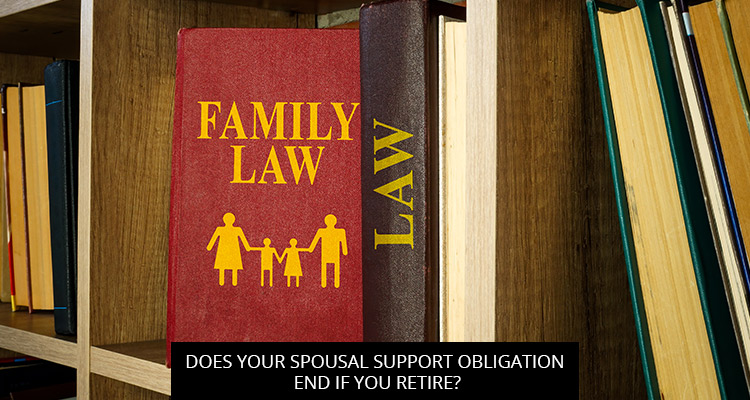
One of the foremost questions that pop up in mind when considering separation is the division of property and the length and amount of spousal support that can be agreed upon or claimed in the courts.
Generally, there is no policy objective in placing a time limit on the duration of spousal support. That is to say, the paying party may be obligated to provide spousal support payment even if they get retired from employment as spousal support obligation does not specify an exact end date.
This article is going to take into account the recent case of David v. Davis, where the Ontario Superior Court of Justice has ruled on how retirement impacts the spousal support obligation of the paying party.
Overview Of The Facts Of The Case
In Davis, the parties were married in 1987 and separated in 2008. Initially, the husband was required to pay $1,800 per month to the wife which was later increased to $2,200.
In 2019, the husband got retired. It is pertinent to note that the husband’s retirement was not at the command of the employer but he resigned from the job to secure his physical health as the job was quite physically demanding. The husband contacted the Family Responsibility Office (FRO) prior to his retirement in regard to the forthcoming reduction in his income.
In 2020, a Motion to Change was brought by the husband claiming termination of the spousal support obligations. The wife to such claim responded that their marriage was a traditional one and she had expected that his husband will continue to work till the age of 65 years. She also maintained that her husband’s retirement was voluntary and that he discontinued paying the spousal support as soon as he got retired from the job.
How The Husband’s Motion To Change Was Addressed?
The Superior Court of Justice of Ontario highlighted the significance of the process of two-step test for the purposes of addressing support variation. At the absolute core, the existence of supporting conditions is mandatory for a variation to take place. The second part is extensively significant as it deals with the question of a material change in circumstances. To be noted that, if a change in the circumstances is foreseen at the time of initial order, then such a change would not qualify as a reason for the variation.
In order to evaluate the husband’s condition, the court applied the two-part test. The evidence suggested that the husband worked for the company for 30 years on his knees. Moreover, he also experienced knee injuries between 1982 and 1987.
In the mid-1980’s, he also developed sciatica. During the husband’s consultation with his doctor, he was prescribed to quit his job since it was physically demanding and was not safe to continue due to his declining health.
Here, the husband did not establish any medical evidence to support his claim. In the analyzing stage, the counsel for the wife purported that the husband has failed to provide the court with any supporting medical evidence.
In Leskun v Leskun, the court made it abundantly clear that medical evidence would be highly desirable but it is not a pre-requisite to prove alleged incapacity. Keeping in view the role of clinical notes and records, the court went on to suggest that the absence of corroborative medical evidence would not impede the court from relying on the husband’s credibility.
In a similar vein, the court also relied on G.P.W. v. L.W. which stipulated that the party’s assertions and depiction of their own health were sufficient to establish that the health symptoms they alleged to be undergoing were true.
Lastly, it was determined that the husband’s spousal support payments should be adjusted to account for his post-retirement income even though the husband had not adhered to the final judgement when he arbitrarily decided to discontinue making payments following his retirement and was compelled by the court to continue providing spousal support based on his new income, resulting in a much reduced monthly payment.
Contact The Lawyers At Ayaz Mehdi Professional Corporation
Given the financial and emotional challenges in spousal support obligations, it is highly recommendable to engage the services of a qualified divorce lawyer. For more information, please contact one of our Divorce Lawyers at Ayaz Mehdi Professional Corporation to discuss your case.
Disclaimer: Kindly note that sending or receiving information through this site does not establish a solicitor-client relationship. Legal matters are fact-specific, and the law is variably changing. The views expressed and the content provided on this blog are general guidelines and cannot substitute for proper legal advice. Schedule your legal consultation by clicking here: Let’s meet!






